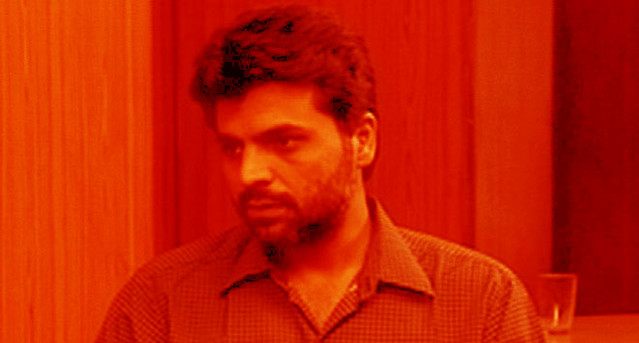By Arfa Khanum Sherwani,
The debate around the legal merits of Yakub Memon’s hanging is over but there is a new wave of thoughts and afterthoughts that’s dominating our social space. Yakub’s hanging has left us more divided than ever before.
The question which haunts us today is why was there so much of division of opinion over the hanging of a terror convict and why did the issue become so polarising? On one side of the debate are the people who have called it a victory of Indian democracy and claim the legal system has taught terrorists a lesson. The message is that India is no more a soft state and is capable of dealing with any external assault in the form of terrorism or otherwise. That the Indian state, its sovereignty and honor cannot be taken for granted.

On the other side are the people who feel Yakub was punished unfairly and the quantum of punishment was not in accordance with his crime. They are also asking if Yakub was hanged because of his religion. If not then why were Sikh assassins Rajoana and Bhullar and three Tamils accused of killing Rajiv Gandhi not executed despite committing equal or more serious crimes than Yakub ?
For some Yakub’s hanging has reopened old wounds. Questions are also being asked about justice in Bombay riot cases of 1993 when more than 900 people died and scores of others injured. If conspiring to carry out terror attacks is waging war against the country, then is killing your neighbor by the hundreds a lesser crime? Yakub has been punished for his crimes but why are the perpetrators of 1993 riots still free? Are there two parameters of justice in the country now- one for the majority, another for the minority? Is religion playing a part in how we are viewed by the law?
Singer Abhijit targeted senior lawyer Prashant Bhushan for seeking a stay on Yakub Memon’s capital punishment by posting an abusive tweet saying he plans to throw torn shoes on Prashant Bhushan’s dead body. Next in obnoxiousness was BJP leader Arshad Alam who labeled those opposing Yakub’s hanging as traitors and wanted them to be deported to Pakistan or Saudi Arabia. Then it was none other than the Governor of Tripura and BJP leader Tathagata Roy. He advised the security agencies to keep a close tab on those who went for the last rites of Yakub Memon as they could be the potential terrorists.
If the debates taking place on the social media are any reflection of how common people are viewing Yakub’s hanging and the idea of justice in India, then it calls for a serious discourse. But the political environment is such where it is difficult to initiate a dispassionate and rationale debate on the question without being viciously abused.
All of us should be concerned to why an issue which should have been discussed purely on the legal merits is being allowed to be used by politics. It has given enough space to Hindutva hardliners to establish that the reign of power is now with them and in this favorable political environment, it is they who are going to decide for the rest of the country. It is astounding how with such ease they are terming almost anyone disagreeing with them as a traitor or anti-national. Anyone who does not share their idea of India does not belong to India.
On the other side of the debate, Muslim parties played up Memon’s religion as a factor in his execution because in three other cases, political support worked in favor of the convicts. It is incidental that the day the Supreme Court rejected Yakub Memon’s mercy petition, a fresh lease of life was granted to the three killers of Rajiv Gandhi by the same court by dismissing the Centre’s curative petition against commutation of their death penalty into life imprisonment.
On the other side of the fence, the situation has given a good political opportunity to people like the Owaisi to crown themselves as the champion of Muslim issues. The MIM chief is asking “if killers of Rajiv Gandhi and Beant Singh have the backing of political parties in Tamil Nadu and Punjab, which political party is backing Yakub Memon?” Sadly we do not have a convincing enough answer to his question.
More worrying was the sight in Mumbai. Thousands of Muslims – young and old- from all parts of the city came to the Bada Qabristan to pay their last respects to Yakub. Most of them came straight from work or braved peak time traffic in local trains and buses to reach on time for the funeral. What was it that drove them to reach the Bada Qabristan in droves? What was running in their minds when they saw Yakub for the last time? Reports say there were more than 26,000 security personnel to manage a crowd of 8,000 civilians. National news channels decided to black out the event in ‘national interest’. But it did not stop the circulation of pictures and videos of Yakub’s last rites using the social media.
The bombings of 1993 were always understood as ‘retributive justice’ for the rioting that took place after the demolition of the Babri Masjid on December 1992 in Ayodhya. Or it was so justified by the bombers. Does Yakub’s hanging give people a similar justification? Is it serving to satiate the ‘collective conscience’ of the masses in India?
Are these the initial signs of majoritarianism? If this is so, then won’t it further isolate the already marginalised Muslims of this country? What if this section starts feeling that it will not be treated fairly and equally? Won’t it affect the credibility of the Indian state as a whole? It’s a pertinent question to ask in new India if the old idea of India, an India for everyone, is still relevant.
—
(Arfa Khanum Sherwani is a senior anchor with Rajyasabha TV.)

